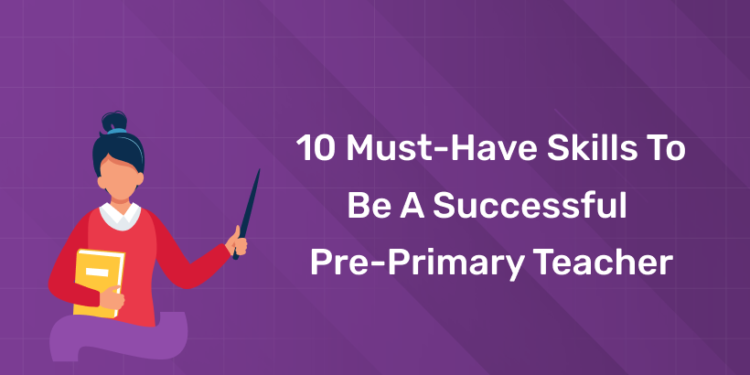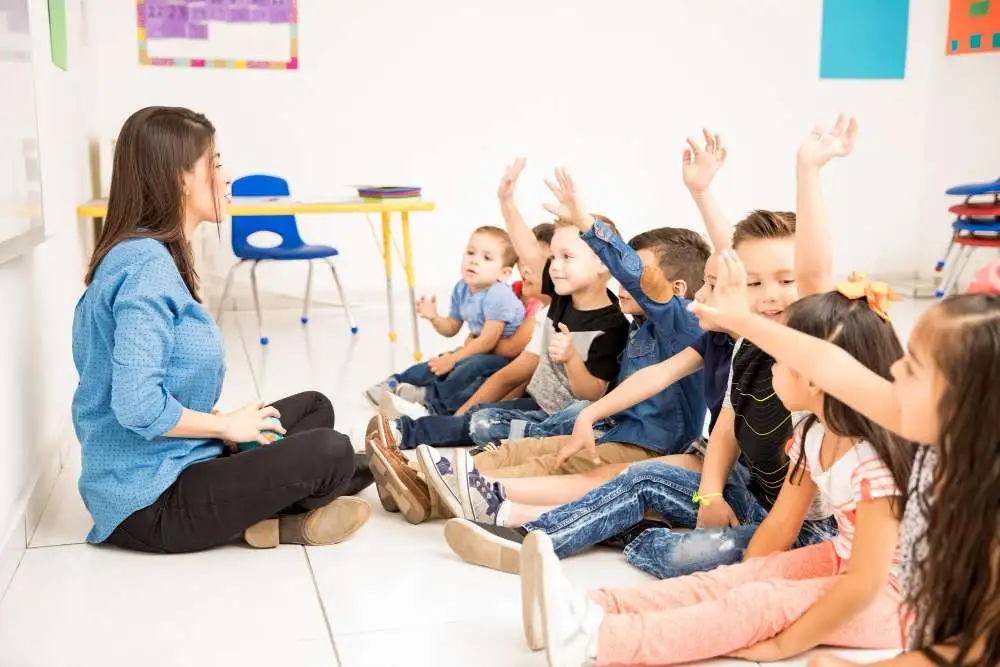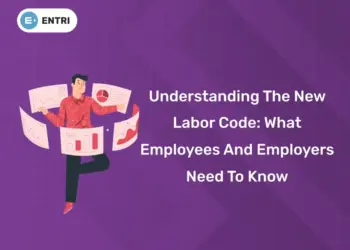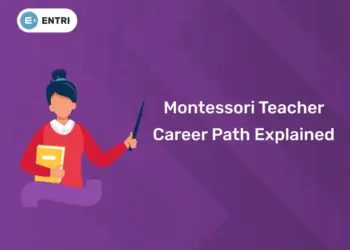Table of Contents
Educating preschoolers is one of the noblest and most important vocations on earth. Pre-primary, which encompasses nursery and kindergarten, is the foundation of a child’s education. A teacher at this level is not only an educator but also a mentor, guide, and emotional support for her students. To really thrive in this field, you need a whole lot more than academic knowledge, it takes patience, empathy, creativity, and the ability to meet children where they are.
With degrees flying out of control in both directions, a pre-primary teacher isn’t just teaching the ABC’s and 123’s anymore. Modern teachers must cultivate emotional intelligence, curiosity and confidence. For early childhood education enthusiasts, knowing the right skills can be everything.
Register for the Entri Elevate Montessori Teacher Training Program! Click here to join!
10 Must-Have Skills to Be a Successful Pre-Primary Teacher
If you’re dreaming of being a pre-school or kindergarten teacher, this manual will take you through the 10 skills to thrive on your teaching journey. And if you want to polish this skills or become certified, taking courses such as the Entri Montessori Course can help you become a world-class educator.
1. Patience and Understanding
Patience, perhaps above all, is the defining characteristic of a pre-primary teacher. Working with kids, that translates to constant questioning, occasional meltdowns, and fluctuating attention. Each child studies differently, and knowing this allows an instructor to forge a zone where studying seems blissful instead of pushy.
A patient teacher hears, sees and adjusts. Rather than expecting instant success, they honor tiny achievements and assist kids to mature in their own time. Cultivating this habit guarantees that teacher and students alike can savor a tranquil and favorable classroom environment.
2. Communication Skills
It’s not just about speaking well. For a pre-primary teacher, it means being capable of communicating things in fun, easy-to-understand ways. Stories and songs and visual aids tend to make things more compelling and sticky.
And, just as important, communication with parents and colleagues. Keeping parents updated on their child’s learning journey establishes trust and transparency. Clear communication also makes sure that the learning environment continues to flow seamlessly in between school and home.
3. Creativity and Innovation
Toddlers do best when lessons are engaging and enjoyable. It’s creativity that enables teachers to transform boring material into thrilling lessons. Whether it’s incorporating art and music to teach numbers, or designing a nature walk to discover science, innovation keeps kids engaged and excited to learn.
A resourceful instructor recognizes how to modify daily resources into lessons. This ability not just turns learning into fun, it cultivates a sense of imagination, one of the most potent qualities in young students.
4. Classroom Management
Running a room full of wild kids is hard. A good pre-primary teacher understands the equilibrium between freedom and discipline. And although establishing clear routines makes children feel safe, flexible boundaries permit them to be expressive.
Effective classroom management isn’t draconian rules, it’s a structured, nurturing environment. Tricks such as positive reinforcement, activities in groups and visual schedules do miracles in making your little learners engaged and cooperative.
5. Empathy and Emotional Intelligence
Pre-primary children are still developing an awareness and vocabulary for their feelings. A teacher’s empathy allows her to traverse this canyon with compassion. Identifying when a child feels upset, anxious or excluded, and responding with warmth, constructs emotional trust.
Empathy also instills a sense of compassion and respect in children. When educators role play empathy, students role play compassion, generating a classroom environment of compassion.
6. Observation and Assessment Skills
Every child’s development is unique. Observation guides teachers to pinpoint individual children’s strengths and weaknesses and learning styles. Through detailed tracking of activity, engagement, and achievement, educators can customize instruction to the individual.
Assessment at this level is not about exams or grades. It’s about knowing developmental milestones, monitoring progress, and giving the appropriate encouragement at the appropriate time. Not only does it record these observations, it also keeps parents aware of their child’s development.
7. Adaptability and Flexibility
In early childhood education, no two days are the same. Some days are funny and creative, and others are just a slap in the face. A successful teacher is reactive, willing to modify a lesson or activity according to the class’s mood or energy.
Flexibility, too, means adopting innovative pedagogy and technology. With today’s classrooms becoming more and more digitized, embracing innovation helps educators stay relevant and impactful.
8. Knowledge of Child Development
Knowledge of child psychology and development is essential for pre-primary teachers It enables them to craft lessons appropriate to their students’ mental and emotional stages. Understanding when to present certain skills , such as reading, or counting, or playing nicely, makes learning seem organic rather than imposed.
A background in child development provides educators with the tools they need to design lesson plans that balance academic learning with play and emotional development. Those pursuing professional training, like the Entri Montessori Course, explore these concepts further with experiential learning modules.
9. Teamwork and Collaboration
Teaching may look like a solo activity, but in fact it feeds on collaboration. Pre-primary teachers work with other teachers, assistants, and administrators to plan lessons, activities, and talk about student progress.
Teamwork makes your teaching consistent and your work environment healthy. Teachers who collaborate and share lessons bring more vibrancy to the classroom for students.
10. Passion for Teaching
Passion above all is what sets great teachers apart. True passion for teaching and children is contagious. The best teachers instill wonder and self-confidence in their students and make education an exciting journey.
This passion also fuels lifelong learning. The best teachers never stop trying to improve their craft whether that means attending workshops, completing online certifications, or trying out new teaching methods. If you want to take your skills to new heights and stand out as an educator, the Entri Montessori Course is the roadmap to professional excellence.
Upskilling with Entri’s Montessori Teacher Training Course
1: What is the primary focus of the first plane of development in the Montessori method?
To further upskill as a pre-primary teacher, consider enrolling in Entri’s Montessori Teacher Training Course. This course is designed to equip aspiring educators with the knowledge and practical skills to thrive in early childhood education.
Benefits of Entri’s Course
- Child-Centered Philosophy: The course is child-centered, so you can tailor your teaching to meet the needs of individual young learners.
- Practical Experience: Get hands-on experience through live classroom involvement and observation, and build your confidence as an educator.
- Flexible Learning: With a blended curriculum, you can learn at your own pace and fit your studies around your existing commitments.
- Global Recognition: Entri’s certification is recognized by many educational institutions and opens doors for teaching opportunities in India and abroad.
Get Certified & Start Your Montessori Career
Montessori Teacher Training Course by Entri App: Gain expert skills, earn certification, and kickstart your teaching career.
Join Now!Key Takeaways
- Terrific pre-primary teachers mix heart with hands-on classroom skills.
- Ingenuity, expression, and forbearance are the basis of teaching.
- Ongoing professional development like the Entri Montessori Course keeps your teaching sharp and your confidence high.
- A well-trained teacher can impact not only academic learning but also emotional and social development.
Conclusion
Being a successful pre-primary teacher is not about textbooks but about kids. It takes empathy, flexibility and conscientiousness. When teachers combine craft with compassion and art they cultivate confident, happy students who love learning for life.If you love early education and want to shape young minds then check out the Entri Montessori Course. This is for future and current educators who want to succeed in today’s classrooms. It’s not just a course it’s your roadmap to being the teacher they remember.
| Also Read | |
| 5 Ways Montessori Teacher Training Benefits Children | |
| What Qualifications Do You Need for Kindergarten Teacher Jobs? |
|
| Montessori Pink Tower Making | |
| Knobbed Cylinders in Montessori | |
Get Certified & Start Your Montessori Career
Montessori Teacher Training Course by Entri App: Gain expert skills, earn certification, and kickstart your teaching career.
Join Now!Frequently Asked Questions
What are the core skills needed to become a successful pre-primary teacher?
Successful pre-primary teachers need a mix of child development knowledge, patience, creativity, communication skills, classroom management, observational ability, and adaptability. Soft skills like empathy and passion also play a major role.
How can I improve my communication skills with young children?
Use simple language, storytelling, songs, and visual aids. Always listen actively to children’s questions and encourage expression through words, gestures, or art to build trust and foster growth.
Why is Montessori teacher training important for pre-primary educators?
Montessori training emphasizes child-centered learning, independence, and hands-on activities. This approach aligns with modern early childhood education standards and increases your job prospects, especially through programs like Entri’s recognized Montessori course.
How can a pre-primary teacher effectively manage difficult classroom behaviors?
Employ gentle discipline strategies such as positive reinforcement, setting clear boundaries, and using conflict resolution techniques. Understanding the cause of behaviors and addressing them empathetically helps maintain a peaceful environment.
What role does technology play in pre-primary teaching?
Technology, when used thoughtfully, supports interactive learning and parent-teacher communication. Tools like educational apps and digital storytelling enhance engagement but should be balanced with play and physical activities.
Can I become a certified pre-primary teacher without a degree?
Yes, completing recognized teacher training programs or Diplomas in Early Childhood Education (like TTC or D.El.Ed) can qualify you. Adding certifications such as Montessori training further strengthens your profile.
How can I keep growing professionally as a pre-primary teacher?
Engage in continuous learning through workshops, online courses, and peer collaborations. Entri’s Montessori Teacher Training offers ongoing development, skill enhancement, and placement support for career advancement.
What are some challenges faced by pre-primary teachers and how to overcome them?
Challenges include managing diverse learning needs, maintaining attention, and balancing parental expectations. Preparation, patience, creativity, and support from training programs help overcome these hurdles.
How important is parent-teacher communication in pre-primary education?
Very important. Regular, transparent communication helps track child progress and builds trust. It also ensures that learning and behavioral strategies are consistent between home and school.
Are there good job opportunities for pre-primary teachers in India and the Gulf?
Yes. Schools increasingly seek skilled, trained early childhood educators, especially those with Montessori certification. India and the Gulf offer growing careers and good salaries for certified teachers.














